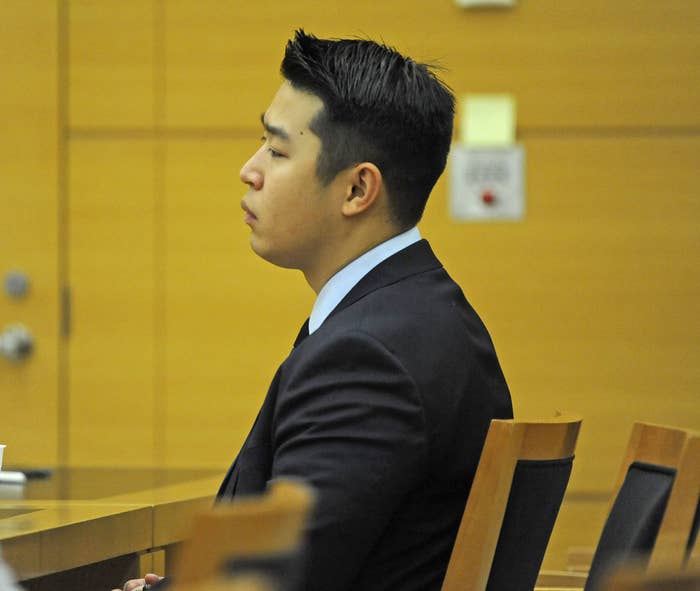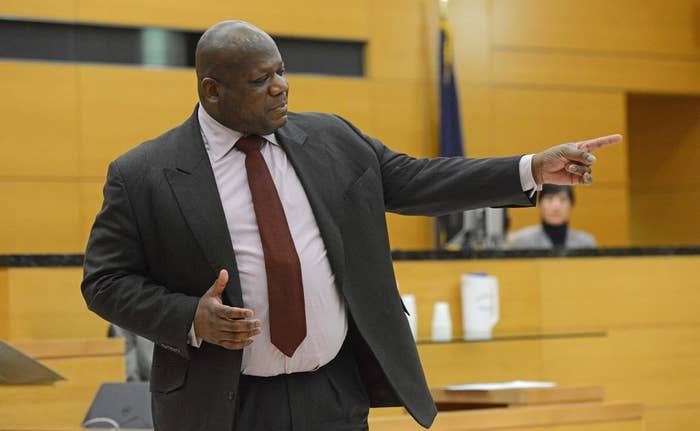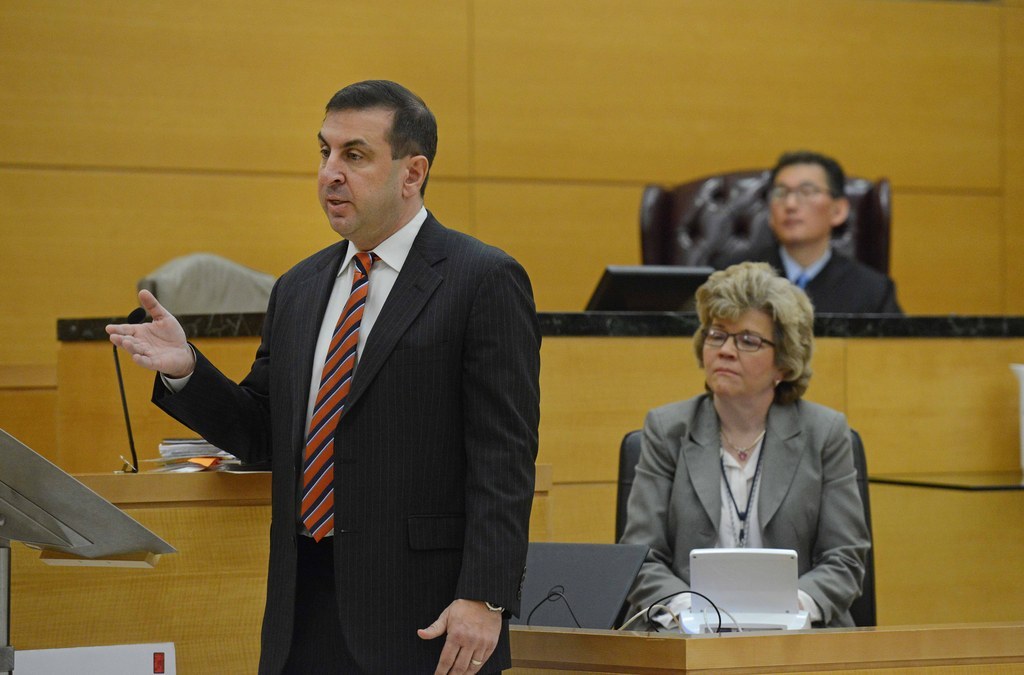
Prosecutors and defense attorneys in the trial of a New York City police officer charged in the fatal shooting of an unarmed black man agree on one thing: Peter Liang did not intend to kill Akai Gurley.
Gurley died in November 2014 when a shot fired from Liang's gun struck a wall, ricocheted, and struck him on the left side of his chest. Liang, who had been on patrol for less than a year at the time, contends that his gun discharged accidentally after he was startled by a "quick sound" in the stairwell. Liang was charged with manslaughter, criminally negligent homicide, assault, reckless endangerment, and one count of official misconduct and could face up to 15 years behind bars. The judge threw out an additional charge of official misconduct.
At the end of the two-week trial, both sides made a final appeal to the jury of seven men and five women before they decide whether Liang's actions amount to criminal behavior.
In closing arguments, assistant district attorney Joseph Alexis said Liang was "sworn to protect" Gurley, but failed to do so by having his gun out, placing his finger on the trigger, and firing the weapon.
Alexis argued that Liang's behavior was no accident and indeed reckless since, as Liang testified, he was startled by a noise coming from the darkened stairwell and faced no threat.

"This is not an accident. This is an officer who couldn't properly handle his gun," Alexis said. "It's no accident [the bullet] hit the wall steps away from where Akai Gurley stood.
Alexis contended that Liang is not an "untrained civilian," but a qualified NYPD officer who panicked when he was startled in the 8th floor stairwell.
"Don't believe that Peter Liang didn't know somebody was down there when he turned left," Alexis said. "Guns don't just fire, you know that. An innocent man is dead because he heard a sound, a sound he said he couldn't describe," Alexis said.
Alexis continued to say that Liang's testimony – that he heard a sound coming from the 7th floor but didn't know someone was down there – "doesn't make sense."
"If he was startled by a sound that means he knew there was a person down there," Alexis said.
Both Liang and his partner Shaun Landau testified that they received minimal CPR training during their time at the police academy, and therefore were unable to render first aid.
"No matter what happened in the police academy with police training, you can rest assured Peter Liang, Shaun, and every other graduate of the academy was better equipped, better trained, and able to do the chest compressions Melissa Butler was forced to do while she knelt in [Gurley's] blood and urine," Alexis said.
Prosecutors argued that after firing the shot, Liang tried to hide it and "hush it up."
Alexis said Liang opted to call his sergeant on Landau's cell phone because he knew it wouldn't be recorded, the way a police radio transmission is.
A shooting is "not a casual thing you talk about with your fellow officers on the cell phone," Alexis said. "That's an emergency"

During the defense's closing arguments, Peter Liang's attorney, Robert Brown, pushed back on the prosecution's account on the details and timeline of the incident.
"The prosecution's case is a lot of pounding on the table," Brown said. "What happened here is a tragedy. It's a terrible tragedy, but what my client did is not a crime at all."
Brown broke down the prosecution's arguments that Liang wasted critical minutes arguing with his partner, Landau, over who should call their supervisor to report the discharge.
"The reality of it is, as soon as he realized he shot Akai Gurley he put it over the radio," Brown said. "There was no hesitation."
The defense also disputed the prosecution's claim that having a gun out during vertical patrols is a gross deviation from police training.
Referencing the number of current and former police officers who testified in the trial, Brown said it is common for an officer to take a gun out of the holster when approaching the roof of a public housing development.
Brown also disputed the prosecution's claim that Liang should have called in the incident on his radio rather than a cell phone.
"Many of the officers that got on the stand testified that they've had problems with radios working," in housing staircases, Brown said, adding that in this day and age it is common for police officers to communicate by cell phone.
Brown urged the jurors to not let other incidents of police killings from across the country influence how they decide Liang's fate.
"He shouldn't be made a scapegoat for anything else that's happening," Brown said. "To make a determination this his actions were criminal would send a chilling effect to police officers in New York City."
Prosecutors objected to the latter part of Brown's comment and the judge instructed the jurors to not consider it.
The jury is expected to begin deliberating Tuesday afternoon.
